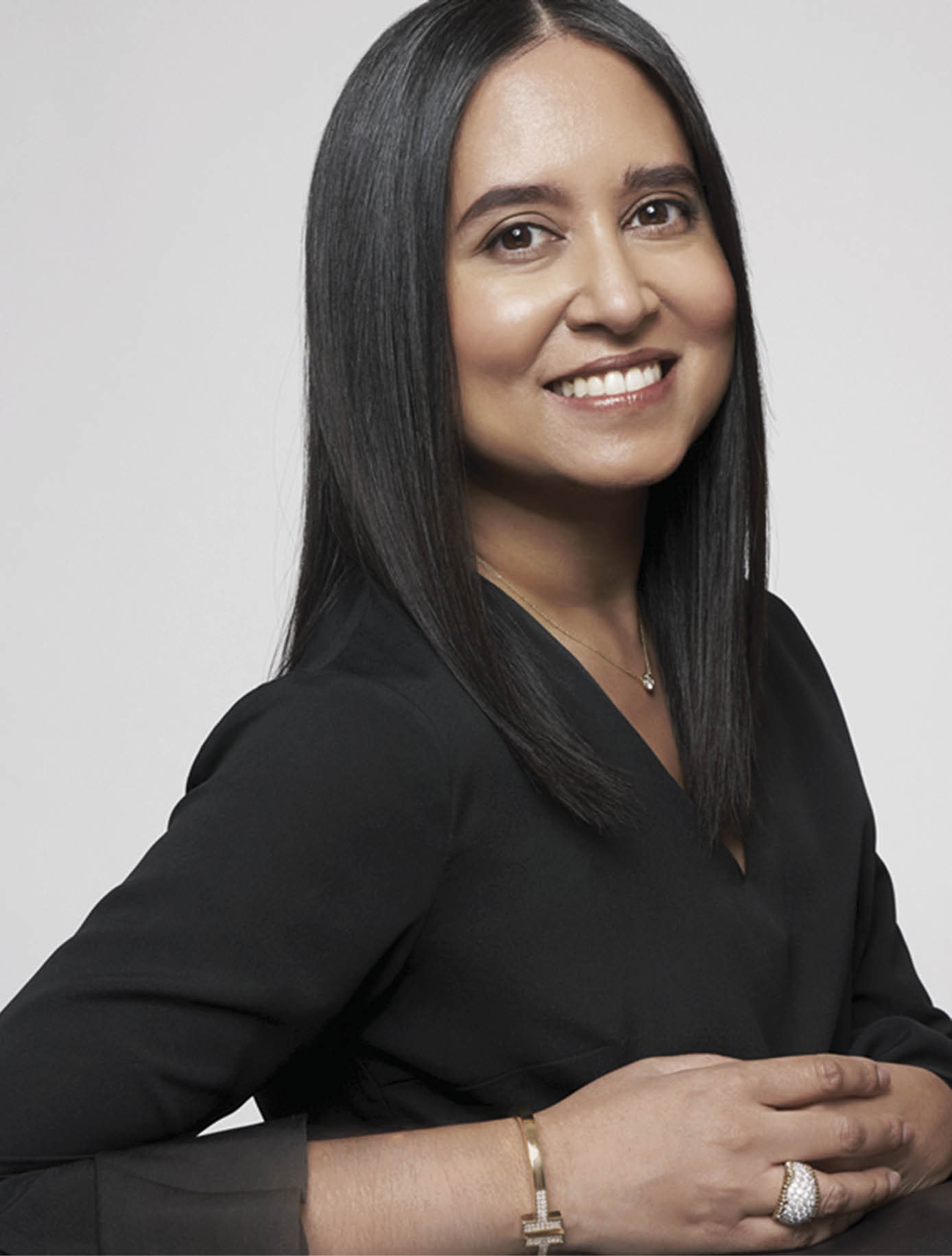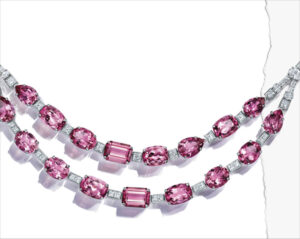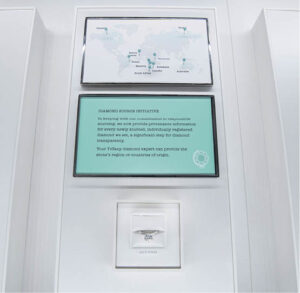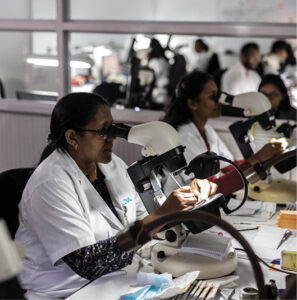Sustainability has been a hugely important aspect of the development of Tiffany & Co. for many years.

It has been deeply ingrained in the jeweller’s core values and continues to be the leading element on the future development of the brand. Tiffany & Co.’s approach to sustainability is guided by the brand’s desire to create change in the industry both on a corporate and consumer level. By educating customers and leading the path of change the brand is already successfully doing that. Over a decade ago, Tiffany & Co. began to outline plans for the future of sustainability. This included the ethical sourcing or materials, diamond traceability, protection of workers and animals, and equal opportunities and rights for Tiffany & Co. employees. Each year the brand is publishing a comprehensive sustainability report, outlining the goals for the future and building towards becoming the world’s most sustainable jeweller.
Leading the way is Anisa Kamadoli Costa, Chief Sustainability Officer. Kamadoli Costa directs Tiffany’s global sustainability agenda, improving global corporate standards, minimizing the company’s environmental impact and driving partnerships across the for-profit and non-profit sectors. As well as overseeing the sustainability agenda, Kamadoli Costa is also CEO of the Tiffany Foundation where she oversees strategic grant-making focused on responsible mining and coral conservation. Earlier this year, Tiffany outlined its 2025 Sustainability Goals which outlines the company’s sustainability priorities for the coming years, as well as presenting the 2020 Sustainability report. The 2025 Sustainability Goals are based on the results of a robust assessment of Tiffany’s social and environmental impact and opportunities and were developed in alignment with the United Nations’ Sustainable Development Goals. To find out more about sustainability at Tiffany moving forward and how the brand is working towards achieving its goals, we talk to Anisa Kamadoli Costa.
You have a dual role as both CSO for Tiffany & Co. and CEO of the foundation. How do you balance these two roles?
For me, balancing these two roles is about identifying where they intersect and the ways that corporate responsibility and strategic philanthropy complement each other. By leading both the corporate sustainability and strategic philanthropy at Tiffany, I have different strategies to draw from when it comes to identifying solutions and finding partners for progress. Having a seat at both tables, the company and the foundation, allows my teams to drive more holistic, collaborative, and complementary solutions.

Why does Tiffany & Co. invest in sustainability?
For more than two decades we have been making concerted efforts in sustainability. From vertically integrating our supply chain by establishing direct sourcing relationships and our own diamond cutting and polishing workshops, to establishing The Tiffany & Co. Foundation in 2000, to issuing our first sustainability report in 2011.
Tiffany & Co. has long believed in doing what is right. This belief guides our efforts to conserve the natural beauty that inspires us, and relentlessly advocate for the communities touched by our business. I’m proud that Tiffany & Co. has long recognised the importance of protecting our people and our planet for future generations. The company truly believes it has a responsibility to influence culture and set the standards for excellence—not only in fine jewellery and craftsmanship but also in what it means to be a responsible corporate citizen. We are committed to not only minimising our impact as a business but also using our brand to advocate for important issues that positively affect communities and protect the planet.
What do you think is the importance of being transparent with clients today in terms of where products and their materials come from?
We recognise that we are now, more than ever, serving a socially conscious clientele who care deeply about where their most precious possessions came from and how they came to be. Sharing the Diamond Craft Journey with our clients is not solely motivated by consumer behaviours, but rather a desire to be transparent and bring our customers along on the journey of a Tiffany diamond. We are also raising awareness among those who might not otherwise have considered the importance of diamond traceability. When choosing a diamond, that includes not only knowing its country of origin but the conditions and care with which it was crafted.

How do you think the jewellery industry has changed in relation to sustainability and what still needs to be done?
I believe that the jewellery industry can be a positive source of social and economic development for communities and workers along the supply chain. There is growing recognition that sustainability is an integral part of business strategy and that it is a business imperative to align sustainability goals with long-term growth objectives. Today, it’s not enough for companies to simply ensure that their own operations are sustainable. They need to consider their role in the industry, and their role in the lives of the people they reach through their company—including employees, people in their supply chain and surrounding communities, and customers. Leading companies need to go above and beyond to push for improvements in the global system and speak out in support of positive changes.
Is it possible to practice one hundred per cent sustainable jewellery production?
For Tiffany & Co., the manner in which precious metals and diamonds are extracted is of the utmost importance. We believe that ultimately the jewellery industry can be a force for positive change and as a company that uses mined materials, we have an opportunity to improve the jewellery sourcing and production landscape. This is why long ago, we realised that our best means of ensuring a socially and environmentally responsible supply chain was to go above and beyond industry standards and control as much of our supply chain as possible. Our customers can rest assured that we uphold high standards not only in quality but also in social and environmental practices. Our sourcing strategy, including vertical integration, gives us a strong chain-of-custody and direct oversight of our manufacturing operations. We believe that through our responsible sourcing practices we can help promote the protection of the environment and human rights, and the creation of economic opportunity in the diamond industry.

Tiffany & Co. recently made headlines for its continued leadership in diamond traceability. Tell us about that?
Last year, we became the first global luxury jeweller to share the region or countries of origin of our newly sourced, individually registered diamonds. This year, we’re becoming the first to share the full craftsmanship journey of those diamonds, including the cutting, polishing and setting location. All of this information will be shared with Tiffany customers for each newly sourced, individually registered diamond. This information will be available from any sales professional at the case line and it will also be printed on the Tiffany Diamond Certificate. By taking transparency to a new level, we reinforce our commitment to ensuring that every step in the journey of our diamonds can contribute to the wellbeing of people and the protection of the planet.
How does Tiffany & Co. go about educating its clients on sustainable issues?
It’s important for consumers to feel empowered that their purchases make a statement and have a real impact. More and more people recognise that both their buying habits and their advocacy matter. This is one of many reasons why we decided to launch the Diamond Craft Journey. By bringing stone-specific geographic information to the case line, website, and diamond certificate, we are encouraging our customers to make more informed, responsible purchasing decisions. This commitment to transparency is not new for us. We just released our 10th annual sustainability report, which provides details on our strategy, goals, positions and programs, having long focused on transparency, credibility and education.
What would you say is the priority at Tiffany right now when it comes to sustainability?
I am proud to share that we have recently launched a comprehensive set of 2025 Sustainability Goals: a bold roadmap outlining the Company’s sustainability priorities for the coming years. These commitments across our pillars of Product, People and Planet are based on the results of a robust assessment of Tiffany’s social and environmental impact and opportunities, developed in alignment with the United Nations’ Sustainable Development Goals. Tiffany’s 2025 Sustainability Goals are also the result of extraordinary cross-functional collaboration, co-created with partnerships from teams across Tiffany. I am looking forward to all we will achieve in the upcoming years guided by our goals.

What makes you most proud about the work you do?
The way we approach sustainability, and that we continue to keep it at the forefront of how we do business. What this means is that, as a business, we look for ways to make a positive impact throughout our operations and supply chain. We look at sustainability issues holistically, which is especially important because we live in an interconnected and interdependent world. Environmental issues can affect our business as well as people and communities. For example, an issue like climate change also has an impact on other environmental issues such as the health of the ocean, as well as the health and safety of communities and our employees around the world. I am also proud of Tiffany & Co.’s willingness to take a stance on vital issues. Tiffany & Co. has long used the power of its voice and the Tiffany brand to speak out and raise awareness about critical issues of importance to us, and while doing so may be expected of business today, I am proud that we have been doing so for 25 years in a thoughtful manner.















